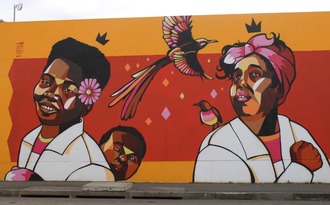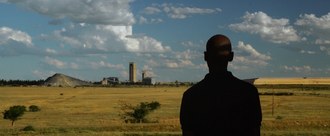- Featured
- Clean air
- Climate justice
- Consumer Rights
- Corporate Accountability
- Data access
- Early Childhood Development
- Economic fairness
- Education
- Electoral fairness
- Environmental justice
- Food justice
- Gender based violence
- Grants/social assistance
- Health
- Housing and infrastructure
- Industry interference
- Land Justice
- LGBTQIA+ rights
- Media/ information access
- Public transport
- Racism
- Reparations
- Safety
- Sanitation
- Service Delivery
- Sexual and Reproductive Rights
- Social justice
- Unemployment
- Womxn's rights/ gender equality
- Workers' rights
- More
-
Demand Corona Relief Fund be set up for precarious workers during the LockdownPrecarious workers make use of mass transport systems (taxis and buses) to get to and from work, areas the WHO and National Department of Health have deemed as high risk for infection. Furthermore, domestic workers and health care workers work in intimate spaces with people who are at high risk of COVID-19 infection, such as the elderly and people who have travelled to and from high-risk countries. However, due to the legacy of inequality, we continue to live in, these are the very same workers who will not be paid – and cannot afford – to self-quarantine. Without income, they also cannot afford healthy food or medication, making them even more vulnerable. We commend the Government for communicating around COVID-19, however, gaps remain in addressing the anxiety, fear and stigma related to infection. On top of the fear of dying, vulnerable workers reside in communities where the potential is high for stigmatisation and discrimination in the event of self-quarantine or being identified as having the virus. We believe that a successful response to COVID-19 requires unity among all who live in South Africa, and we aim to be part of a unified solution. That unified response, however, requires Government to take bold and deliberate steps to ensure that the most vulnerable members of society are cared for and have their dignity and livelihoods secured. COVID-19 will exacerbate inequality among the working class of this country as they do not have the choice to ‘work from home’ and they are subject to ‘no work no pay’ labour conditions. This is compounded by the fact that domestic workers and informal workers particularly still do not have access to the Compensation for Occupational Injuries and Diseases Act (COIDA) that other COVID-19 affected formal workers have. This means that domestic workers and informal workers cannot claim compensation in the event that they contract COVID-19 while at work. Given that we are officially under a national state of disaster, Mr President, we call for expedited access to the Unemployment Insurance Fund (UIF) for domestic workers and informal workers.830 of 1,000 SignaturesCreated by Coalition of Unions, Formal and Informal Workers, Organisations, Activists and other Allies
-
Gold miners are dying of silicosis and TB while waiting for compensation, demand action!Government institutions tasked with compensating sick miners have become dysfunctional with backlogs of 200 000+ unpaid certified claims and an even larger number of unprocessed claims. Stringent requirements and processing centralised in Johannesburg makes it very difficult for sick and repatriated miners to access compensation. Many are unaware of their rights to compensation and thousands have already died without being compensated. Without serious reform of the compensation system, and a concrete plan of action from the TSHIAMISO TRUST, most of the 500 000 miners will die without receiving anything, unless we make this our business and do something. THE COMPENSATION SYSTEM IS BROKEN and if the R5 billion is not paid out within 12 years, it will remain with the mining companies.1,382 of 2,000 SignaturesCreated by Breathe Films

.png)

